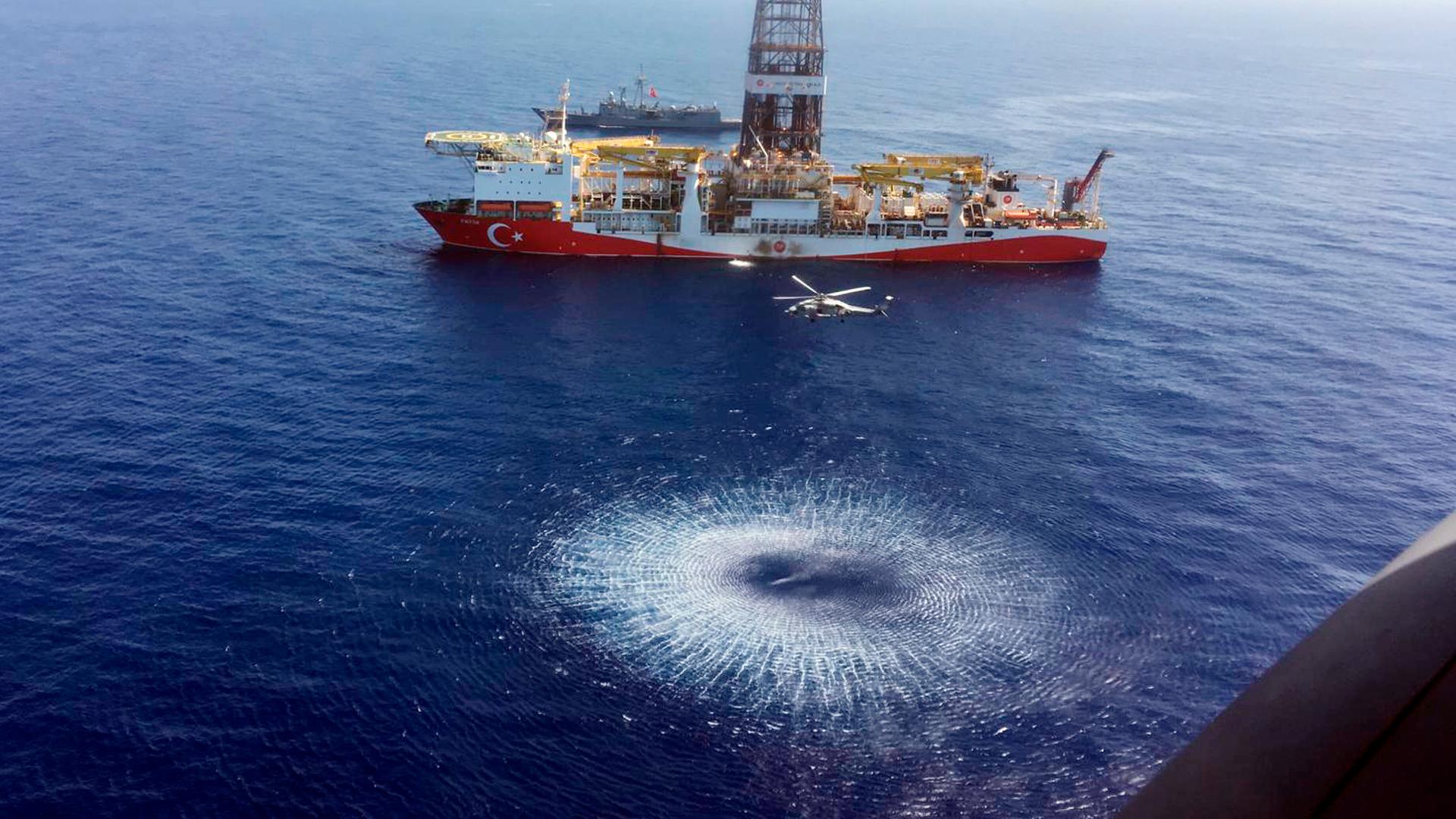No project in the Eastern Mediterranean can achieve its full potential without taking Turkey on board.
Greece, Greek Cypriot Administration and Israel have begun to contest a new energy exploitation venture: the 1,300-mile “EastMed pipeline,” creating more friction in the region instead of seeking a mutual resolution to the dispute for the sake of all regional states.
After the regional concord took place between Libya and Turkey, the trio of Greece, Israel and Greek Cypriot Administration have sped up the launch of this previously planned project, which dates back to 2015.
The parties signed a deal to build an undersea pipeline to transfer natural gas from offshore fields in the Eastern Mediterranean to southeastern Europe and beyond by excluding Turkey and the Turkish Republic of Northern Cyprus (TRNC).
As a result, the Eastern Mediterranean is facing a deepening internationalised conflict, and this partnership is based on an unfeasible geopolitical unilateralism rather than regional facts. It fuels tension rather than eases them.
Unfortunately, a non-negotiated path has the potential to break all hopes for an inclusive blueprint that includes all interested parties in the Eastern Mediterranean.
Ankara views this agreement as a provocative move to isolate Turkey from the Mediterranean Sea and potentially prevent other stakeholders such as the TRNC and even Libya from taking advantage of the region’s resources.
Hami Aksoy, the spokesperson for the Turkish foreign ministry, stated: ‘‘Closing the doors for cooperation including both Turkey and the Turkish Cypriots is a clear indication that some countries are in pursuit of vicious political aims rather than cooperation.’’
In spite of the statements coming from Ankara, the trio does not seem to have the willingness to engage in any dialogue, either with Turkey or with TRNC. Instead, they are in engaging in greater efforts to sell the project by claiming that it would ease the European energy dependence on Russia — a claim which does not gel well with reality.
On the contrary, the EastMed pipeline project comes with its own critical drawbacks such as the question of financial viability, with an estimated completion cost of $7-10 billion, maritime jurisdiction problems with Turkey and TRNC, and the prospect of insufficient gas supply (or surplus) to bear the cost.
Recent reports also discussed that EU countries – the projected buyers of the planned pipeline – do not need new investments in fossil gas infrastructure to safeguard its security of supply. These projects are not “coherent” with Europe’s “climate objectives”.
Besides obstacles to its viability and feasibility, this agreement brings nothing positive to the table, does not help to find a political settlement for all concerned, and will not result in regional prosperity and stability.
Contracting parties should cooperate with Turkey to commercialise the energy wealth in the Levant Basin. The area is a ‘pan-regional energy hub’ and projects like TurkStream and TANAP for transporting the natural gas, allows Turkey to be the country with the most efficient outlet to European markets. This would serve the interests of all sides by providing the cheapest and wisest route across Anatolia through a middle ground with Ankara for further drilling and transportation partnerships.
Turkey cannot be ignored as an efficient route and hub to Europe. In addition, ignoring it will considerably limit the transportation of the gas resources from the Levant Basin and restrict its potential.
On the other hand, Turkey has kept the doors open to negotiate; Ankara’s most recent engagement with Libya was a sign of willingness to engage in dialogue with all stakeholders. In that vein, Turkey is establishing a strong channel for dialogue with Italy to develop an inclusive political consensus.
After taking these circumstances into account, it seems difficult, expensive and an unfeasible endeavour for any project in the EastMed to transfer and commercialise these resources without the support of its neighbours.
All ramifications including the viability, sufficiency and functionality of the project should be reconsidered and prioritised over any regional geopolitical competition. It must be clear to all that a negotiated solution involving Turkey is the only way out.
Author: Enes Yavuz
Enes Yavuz is an Associate Researcher at TRT World Research Center.
Source










Discussion about this post